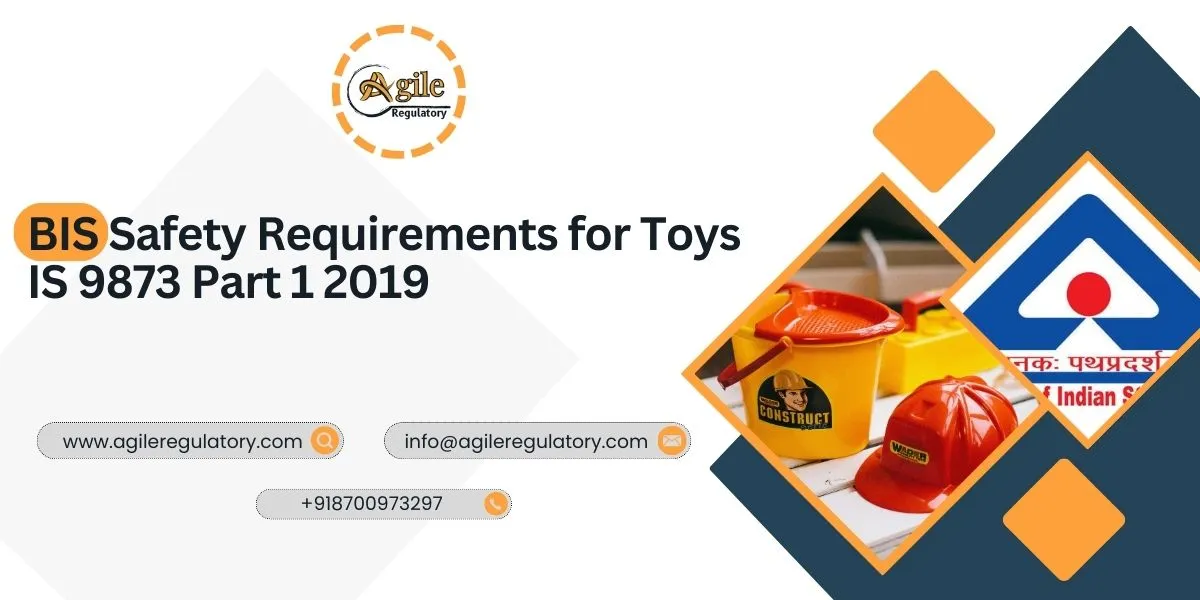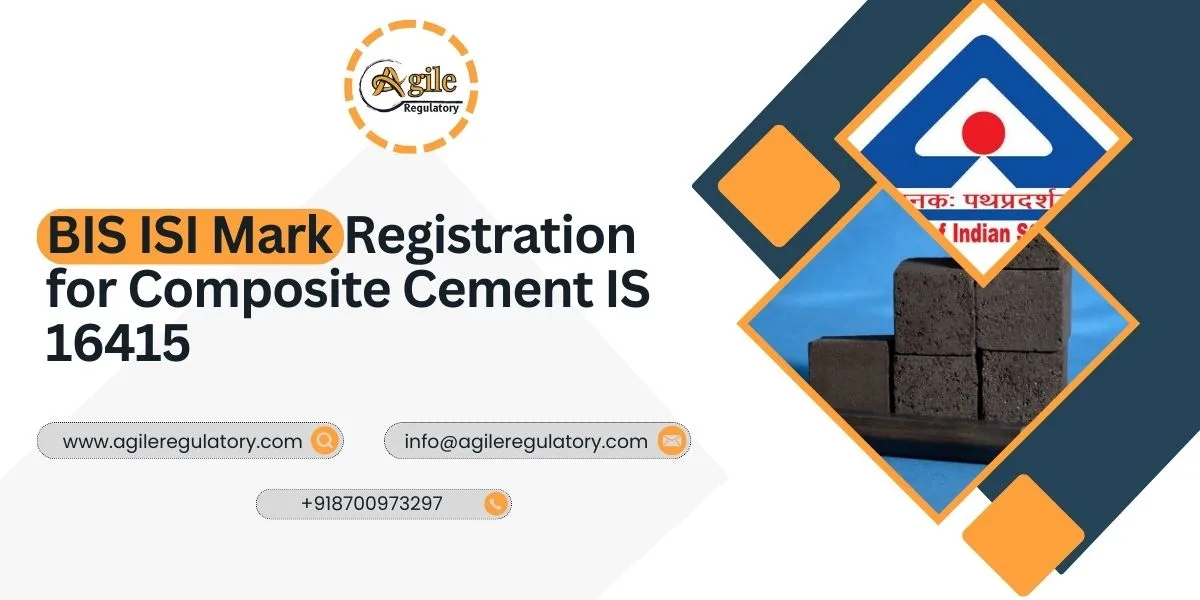
Get Instant Solution By an Expert Advisor
(4.8)


Obtaining a BIS license for any product that complies with the relevant Indian Standards from the Bureau of Indian Standards (BIS) is known as BIS Registration. The Indian Ministry of Consumer Affairs, Food & Public Distribution, Government of India, established the Bureau of Indian Standards which is the country's National Standards Body, in accordance with the Bureau of Indian Standards Act, 2016.
The BIS engages in a range of operations, including the creation of standards, the certification of products, testing, training services, certification of products, laboratory services, calibration schemes, and more. A third-party guarantee of a product's dependability, safety, and quality is provided by the BIS registration.
Manufacturers whose goods are included in the required or optional certification schemes of BIS are granted licenses by the Bureau of Indian Standards. Once a producer has obtained a license from BIS, they are able to display the standard mark on their product.
The Indian government has deemed several items essential, even when acquiring a BIS license is optional, in order to safeguard the environment, public health, national security, and the welfare of people, animals, and plants. It also seeks to stop unfair business practices.
The national standards organization of India, the Bureau of Indian Standards (BIS), is in charge of creating, preserving, and advancing standards across a range of domains, including systems, services, goods, and procedures. The purpose of the BIS License, which is required for a number of items in India, is to guarantee the dependability, safety, and quality of goods and services for the Indian market.
The following are the purpose of getting a BIS certification in India:
The BIS Certificate guarantees that the goods and services fulfil the quality standards established by the Indian government and adhere to the prescribed criteria.
It makes sure that goods and services that are essential to the general public's health and safety, such food, electrical equipment, and construction materials, are risk-free for customers to use.
By ensuring that the goods or services meet the safety and quality standards set out by the Indian government, it protects customers against both unlawful and inferior goods and services.
BIS Registration helps Indian manufacturers export relevant goods to different countries, boosting India's reputation as a dependable source of high-quality goods.
Importers and producers can avoid fines for non-compliance by using BIS Certification which helps them in complying with regulatory requirements.
Here is a list of documents required for getting a BIS certification:
In order to get BIS registration in Delhi NCR or any other state in India, you will have to follow the below mentioned procedure or connect with the team of Agile Regulatory who are the Legal Business Consultants in Noida:
Step 1: The manufacturer or the applicant has to file the BIS application with the above-mentioned documents.
Step 2: After submitting the complete application, the factory undergoes a preliminary examination by a BIS inspector. They verify and conduct quality inspection of the sample product after the examination.
Step 3: Now, this the comprehensive factory inspection takes place, here the inspection officer uses a surveillance technique after the inspection.
Step 4: To confirm the test findings, the inspection authority visits the factory. The test samples are sent by the examining officer to approved labs for examination. Moreover, the test report submitted by lab provides full details about the product quality.
Step 5: The lab generates a report, and submit to the concerned authorities. The test report of the quality report of the products is made on the basis of the quality of products in the factory.
Step 6: If the inspector is satisfied with the application and the test report, then the BIS certificate is granted.
For getting BIS registration, you can connect with the team of Agile Regulatory. We are the legal business consultants in Noida and can help you in getting the BIS registration in Delhi NCR. Our experts offer insightful advice and support at every level of the BIS registration process, helping manufacturers and importers get their goods registered with the BIS quickly.
In order to help manufacturers and importers meet better production efficiency and quality requirements, Agile Regulatory provides a one-stop solution for all product certification, testing, training, auditing, and other compliance services.

 Nishi Chawla
Nishi Chawla
26 Nov, 2025

 Nishi Chawla
Nishi Chawla
26 Nov, 2025

 Nishi Chawla
Nishi Chawla
25 Nov, 2025

 Nishi Chawla
Nishi Chawla
25 Nov, 2025

 Nishi Chawla
Nishi Chawla
22 Nov, 2025

Get Instant Solution By an Expert Advisor
(4.8)
We simplify compliance through a proven 4-step process: Consultation, Documentation, Submission, and certification. From understanding requirements to getting final approvals, we deliver a smooth, timely, and fully compliant journey for your business.
What our customer says about us
Fantastic support from the team. Their expertise transformed our approach, driving remarkable outcomes. A must-have partner for businesses seeking effective consulting solutions. Highly recommended.

KTPL Instruments
Agile Regualtory delivers exceptional solutions. Their insightful guidance streamlined our processes and boosted profitability. Highly recommended for businesses seeking expert consulting services to thrive.

Justrack IOT
Impressed by Agile Regulatory's expertise. Their strategic insights and practical solutions have elevated our business operations. A reliable partner for effective consulting services. Highly recommended for growth-focused businesses.

Coaire Compressor
Extraordinary consulting services. Their insightful solutions and dedicated team reshaped our business, driving remarkable improvements. Highly recommend it for transformative results.

Easy Polymer
Incredible experience with Agile Regulatory. Their innovative strategies and expert advice revitalized our business model, resulting in impressive growth. Highly recommend their exceptional consulting services.

Tarus International
Top-tier consulting! offered strategic solutions that revolutionized our approach. Their deep expertise and personalized guidance made a significant impact on our success. Highly recommend their services.

Anchor Weighing
Agile Regulatory exceeded expectations! Their tailored solutions, expertise, and proactive approach led to remarkable results. Highly recommend for businesses seeking impactful and strategic guidance.

AM Capacitor
Outstanding service! delivered targeted solutions with professionalism and expertise. Their insights elevated our business strategies, resulting in noticeable growth. Highly recommended for exceptional consultation.

Imaxx Pro Aquistic
Leave a Reply
Your email address will not be published. Required fields are marked *